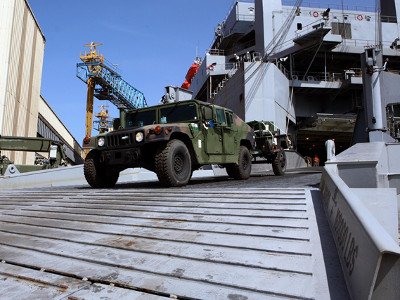
The US Africa Command’s largest annual joint and combined exercise, African Lion 2024, has gotten underway in Tunisia, with more than 8 000 personnel from 27 countries taking part.
The exercise kicked off on 29 April and is set to conclude on 31 May. It is hosted by US Army Southern European Task Force, Africa (SETAF-AF), and is being held across Tunisia, Senegal, Ghana and Morocco, Deputy Pentagon Press Secretary Sabrina Singh told reporters this week.
“African Lion provides an opportunity to conduct realistic, dynamic and collaborative readiness training in austere environments,” said Singh, adding that the exercise increases interoperability, while strengthening shared defence capabilities and cooperation used to counter violent extremist organisations and transnational threats.
“The exercise is a testament to the dedication participants have to enhancing security and collaboration across the continent,” she said.
“Now in its 20th year, African Lion highlights the US military’s commitment to maintaining strong relationships with allies and partners throughout the region, thus embodying the military’s partner-led and US-enabled approach to Africa,” according to a recent Army release on the exercise.
“We are very grateful for our Tunisian hosts. They continue to demonstrate their professionalism and hospitality,” US Army Brigadier General John A LeBlanc, SETAF-AF deputy commanding general, is quoted in the release. “This multinational engagement is designed to prevent conflicts, deter adversary aggression and ensure readiness to respond effectively to any crisis.”
During the Tunisia portion of the exercise, African Lion will be focused on developing readiness and interoperability among participating countries through diverse training activities. This includes live-fire exercises; explosive ordnance disposal operations; and chemical, biological, radiological and nuclear training, according to the release.
Multiple training areas will be utilised throughout Tunisia, including Bizerte, El Aouina Air Base in Tunis, the Port of Gabes and the Ben Ghilouf Training Area. Ben Ghilouf will feature live-fire exercises, including heavy artillery with High Mobility Artillery Rocket Systems and a field training exercise. Concurrently in Bizerte, the focus will be chemical, biological, radiological and nuclear training, as well as explosive ordnance disposal operations.
Additionally, a range of academic courses covering military intelligence, civil affairs, air-ground integration, public affairs and legal studies focused on the rule of law will be conducted during the exercise period.
The exercise runs until May 10, 2024, in Tunisia, but will continue until May 31 in three other host nations: Morocco, Ghana and Senegal.
While more than 1 000 military personnel from both the US and Tunisia are participating in Tunisia, more than 8 000 multinational service members from 27 countries and contingents from NATO will participate in the overall exercise.
“It’s important to highlight the fact that those numbers include members of the Army, Air Force and Marines,” LeBlanc is quoted in the release. “I happen to be a New Hampshire National Guardsman myself, and I’m very pleased elements of the US Army Reserve and National Guard have flown all the way to Tunisia for African Lion as well.”
Elsewhere in US Africa Command’s area of responsibility, Singh announced that US Naval Forces Africa and US Marine Corps Africa are joining with Ghana’s navy to lead the African Maritime Forces Summit and Navy Infantry Leadership Symposium Africa in the Ghanaian capital of Accra this week.
During the summit — which has a theme of “Cooperation at sea: Safeguarding African Maritime Security” — military chiefs and government leaders from more than 40 international ally and partner countries are participating in panel discussions focused on maritime security and collaboration, said Singh.
“These discussions and connections will improve interoperability across domains and continents, strengthening strategic-level relationships to help facilitate better regional cooperation when dealing with maritime threats,” she said.
The first event of this kind took place virtually in July of 2021 with more than 16 countries in attendance.









